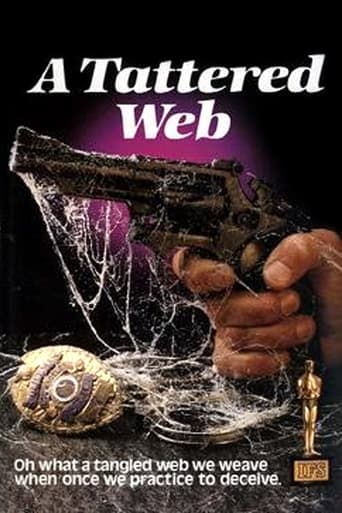Woodyanders
Gruff, hard-nosed Sergeant Ed Stagg (an excellent performance by Lloyd Bridges) discovers that his basically decent, but frustrated son-in-law Steve Butler (nicely played by Frank Converse) is having an extramarital affair with Louise Campbell (a brief, but memorable turn by the sexy Anne Helm). Stagg confronts Campbell and accidentally kills her. Assigned to the investigation of the homicide, Stagg tries to pin the murder on sad drunken derelict Willard Edson (a superb Broderick Crawford in a remarkably poignant characterization). Director Paul Wendkos, working from an intriguing script by Art Wallace, relates the compelling story at a snappy pace and develops a reasonable amount of tension. This film further benefits from sturdy acting by a tip-top cast: Sallie Shockley does well as Stagg's sweet and unsuspecting daughter Tina, the always reliable Murray Hamilton is likewise fine as Stagg's loyal partner Sergeant Joe Marcus, plus there are cool bits by veteran character actors John Fiedler, Val Avery, Whit Bissell, and James Hong. Moreover, the movie makes valid points about the abuse of power, the danger of taking someone at face value, and the extremely damaging consequences of certain bold actions. Michel Hugo's crisp cinematography makes inspired occasional use of slow motion. Robert Drasnin's moody score also does the trick. A neat little flick.
Hitchcoc
While this is not "Crime and Punishment," it's still kind of a neat story. Lloyd Bridges plays an LA cop with a sterling reputation, but he is carrying around lots of baggage. He is so overprotective of his daughter because he has been hurt so many times himself. In order to continue that protection, he horns in on an affair his son in law is having with a young woman. While threatening this woman, he inadvertently kills her. The rest of the movie involves his efforts to cover things up and draw attention away from his daughter's husband. There is a tug based on Bridges' hypocrisy in that he has hated his son-in-law from day one, just for being his son-in-law. The plot stands up pretty well. The police are dupes in all this because of the outstanding record of the sergeant. The one character that really doesn't do very well is the daughter. She comes across pretty dull and doesn't have any hard edge at all. Late in the movie, when another police detective is trying to talk to her, she does her own version of the "if I just hold my hands over my ears I won't hear anything bad" routine. No wonder the guy went to another woman. As I said, there's a lot of angst, some decent acting, some not so decent, but it will hold one's attention for an hour and a half.
John (opsbooks)
I watched this movie with a girlfriend who HATES stories which give away the murderer in the first hour. However, by the time the credits rolled, we both agreed that it was well-acted (apart from the police sergeant's daughter) drama with a great deal of suspense, as neither of us guessed what Lloyd Bridges' character would do as his life began to unravel in the final minutes.I thought Lloyd Bridges put in an excellent performance despite the limitations of the script. The story overall was good and there was nothing that wasn't believable, unlike 'Murder Once Removed', for example (though I enjoyed that movie as well).The test of an good movie has to be that you don't leave your seat until the end, and neither of us did.
rsoonsa
A critically important component of virtually all successful cinema is suspense, a perception of uncertainty within the viewer as to what may ensue from the events occurring upon the screen, whichever genre, present even when we know an outcome (Apollo 13) if the work is done well; all of which is meant to point to a total absence of suspense in this weakly directed feature, which dully plods from scene to scene until its flat ending. Lloyd Bridges, cast as police sergeant Ed Stagg, has discovered that the husband (Frank Converse) of his daughter Tina (Sallie Shockley) is dallying with a local chippy and during Stagg's attempts to end the adultery, he accidentally commits a murder, upon which he forges a plan to place responsibility for the crime upon a local inebriate, tangentially providing a question of the title: was Scott's "What a tangled web we weave..." (Marmion) the intended source, inaptly transposed into "tattered"? (an amendment that would be of a piece within this poorly crafted affair). The film is steeped in cliché, hampered by a witless score, and the acting from the three mentioned leads is often embarrassingly bad, notably in the case of Bridges, which might be attributed to the hackneyed script if it were not that Anne Helm as the doxy and Murray Hamilton as Stagg's partner manage to make something of their material, while Broderick Crawford rises above his during his few scenes.



